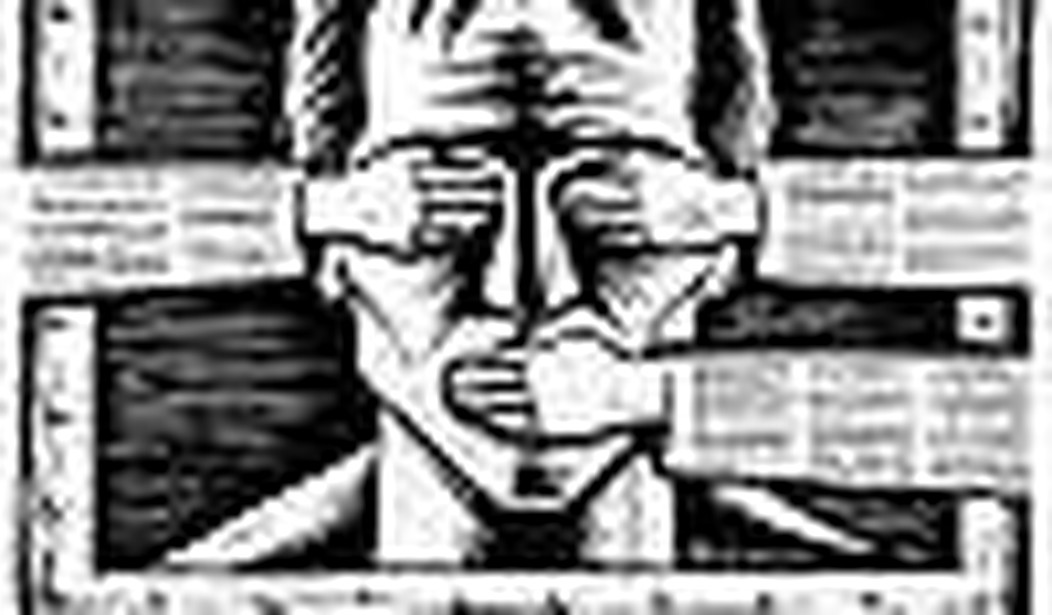We live in a world where you really have to watch what you say. As Ben Stiller recently discovered, even authors and film directors are not exempt from censorious crusaders. A few days before the release of the film Tropic Thunder, co-written and directed by Stiller, protesters denounced this comedy for its repeated use of the word “retard” to describe one of the characters.
You don’t need to be a director of a multi-million dollar comedy to become subject to the attention of censors. The other day I received a helpful guide to the words that I should not use by a publisher who was interested in my work. As expected, the guide warned me about using the word “retard” to refer to retarded people. But I was surprised to discover that the term “mentally ill” was now deemed so offensive that I was instructed to use the term “mental health service user.”
One day I will write a book about the kind of mental state and imagination that leads people to cobble together such a long list of blasphemous words.
But what struck me was how out of touch I had become with the sensibility of contemporary censorship. I was genuinely taken aback when I discovered that the term “Chinese Whisper” was offensive because of its apparently racist connotations. I was moved to despair when I found out that one of my favorite words, “civilized,” ought not be used by a culturally sensitive author because of its alleged racist implications. But “seminal”? Who other than a sad retard could imagine that the word conveyed a powerful hint of patriarchal domination.
The censorious moment
Censorship has a long history. Back in Roman times two magistrates — or “censors” — were charged not only with counting the population but also with the supervision of public morals. Although in the 19th and 20th centuries censorship was frequently driven by a political imperative, its aim remained essentially the policing of moral behavior.
Twenty-first century censorship continues this tradition of moral enterprise. Today censorship is not simply the project of state or religious authorities. Advocacy groups, educators, media organizations, and professionals are actively engaged in rhetorical crusades to ban certain words and/or to promote their own favored ones. In modern times there has never been an era such as ours where language is so carefully regulated and policed by both private and public institutions.
The main reason for this development is the ascendancy of the belief that words can hurt far more than we previously suspected and that people have the right to be protected from them. It is a sign of the times that acts of censorship are not interpreted as what they really are — the coercive regulation of everyday communication and the repression and stigmatization of certain ideas. Instead, they are often represented as enlightened attempts to prevent offending people or as a sensible way of minimizing conflict.
Words are frequently depicted as weapons that can traumatize and psychologically damage its targets. Consequently, the right to free speech often competes with the right not to be offended. From this perspective, censorship is not perceived as a form of authoritarian intrusion but as an enlightened measure designed to protect the vulnerable from pain.
The idea that language offends is not new. But the notion that because offensive speech has such a damaging consequences on people that it needs to be closely regulated represents an important departure from the way it has been conceptualized in previous times. Such an orientation has as its premise a radical redefinition of human subjectivity. It assumes that people lack the intellectual resources to deal with competing ideas. Consequently, the public that lacks independence of thought or moral autonomy it needs to be protected from making the wrong choices in the marketplace of ideas. In such circumstances, ideas can be very dangerous and their suppression can be represented as an act of public service.
The aspiration to protect individuals and people from painful words is underwritten by powerful cultural forces. Consequently, in contemporary times there is only a feeble cultural affirmation for free speech. Indeed, one often gains the impression that academics and public figures are more interested in criticizing the ideal of free speech than in upholding this right.
Many contributors on this subject are not particularly worried about the role of the state in policing speech. Therefore, the original impetus behind the emergence of the cause of free speech — fear of the power of the state to censor and persecute people for their beliefs and words — is dismissed as a historical footnote. It is implicitly discarded as an old fashioned and irrelevant obsession.
Perversely, the exercise of free speech is associated with elite privilege. It is represented as affirming the status of the powerful and the negation of the oppressed and the vulnerable. This radical reinterpretation of the role of free speech is underwritten by a fundamental redefinition of what constitutes the problem. For critics of free speech the locus of the problem is not the state but individual speech acts that wound those without power.
Sadly, we are in danger of forgetting that it is precisely because words have such power that democracy relies on free speech. The freedom to offend is a very small price we pay for upholding a democratic way of life.









Join the conversation as a VIP Member